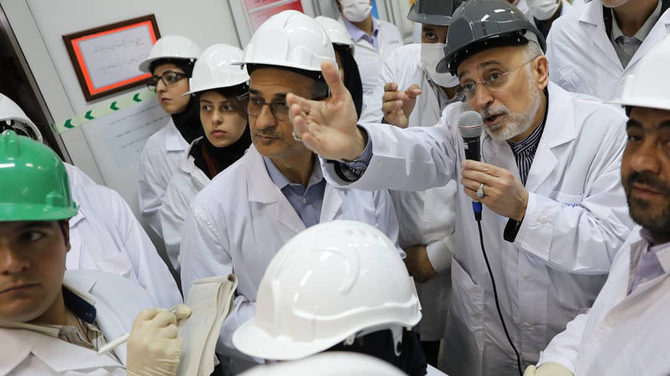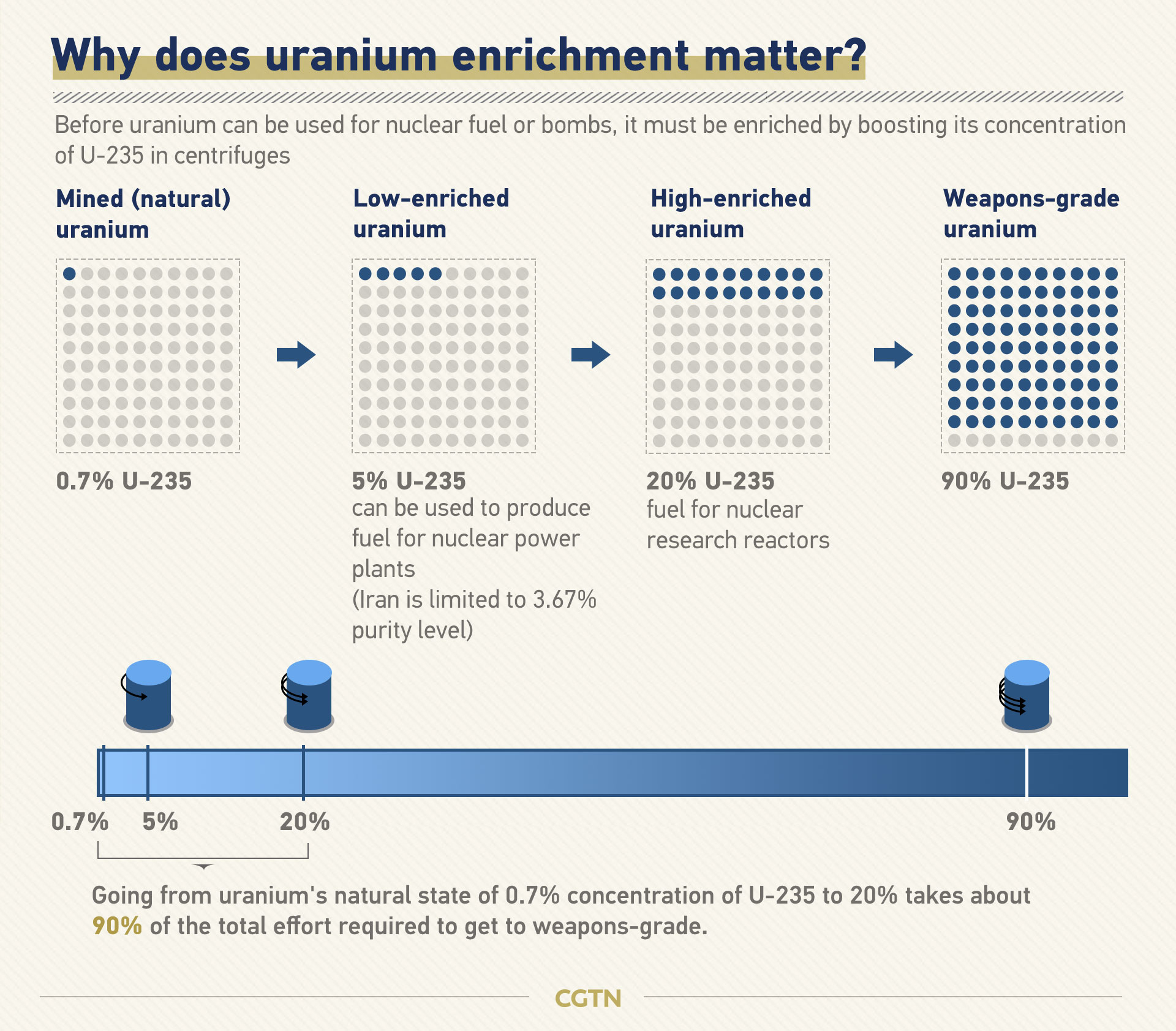
Ali Akbar Salehi, head of Iran's Atomic Energy Organization, addresses workers during a visit at the Natanz nuclear facility in 2019. /AFP
Ali Akbar Salehi, head of Iran's Atomic Energy Organization, addresses workers during a visit at the Natanz nuclear facility in 2019. /AFP
Iran said on Tuesday it would deliver a "decisive response" to any Israeli move against it, after Israeli Prime Minister Benjamin Netanyahu said Israel would not allow Tehran to develop nuclear weapons, a news agency close to the Revolutionary Guards said.
On Monday, Iran said it resumed 20 percent uranium enrichment at a nuclear facility, a move that coincides with rising tensions with the United States in the last days of President Donald Trump's term. The decision is the latest of several Iranian breaches of a 2015 nuclear accord with major world powers.
Netanyahu said the move was aimed at developing nuclear weapons and Israel would never allow Tehran to build them – an allegation denied by Iran.
An unnamed security official reportedly warned that Israel will face a decisive response from Iran if it carries out any aggression against Iran's interests and security. The statement was widely carried by Iranian news agencies and state media.

On Tuesday, Iran gave more details about its enrichment decision by saying it had the capacity to produce up to 9 kilograms of 20 percent enriched uranium per month.
"At present, we produce 17 to 20 grams of 20 percent uranium every hour," said Ali Akbar Salehi, head of Iran's Atomic Energy Organization. "We have a monthly production capacity of 8-9 kg to reach the 120 kg stipulated by the law."
The decision to enrich to 20 percent purity was one of many moves mentioned in a law passed by Iran's hardline-dominated parliament last month in response to the killing of the country's top nuclear scientist, which Tehran has blamed on Israel.
Though the purity remains short of the 90 percent required to make a nuclear bomb, it is much higher than the standard set in the 2015 agreement, under which Iran was supposed to keep enrichment below 4 percent.
The 2015 deal has been unraveling ever since President Donald Trump dramatically withdrew from it in May 2018 and imposed crippling economic sanctions on Tehran.
(With input from Reuters)

